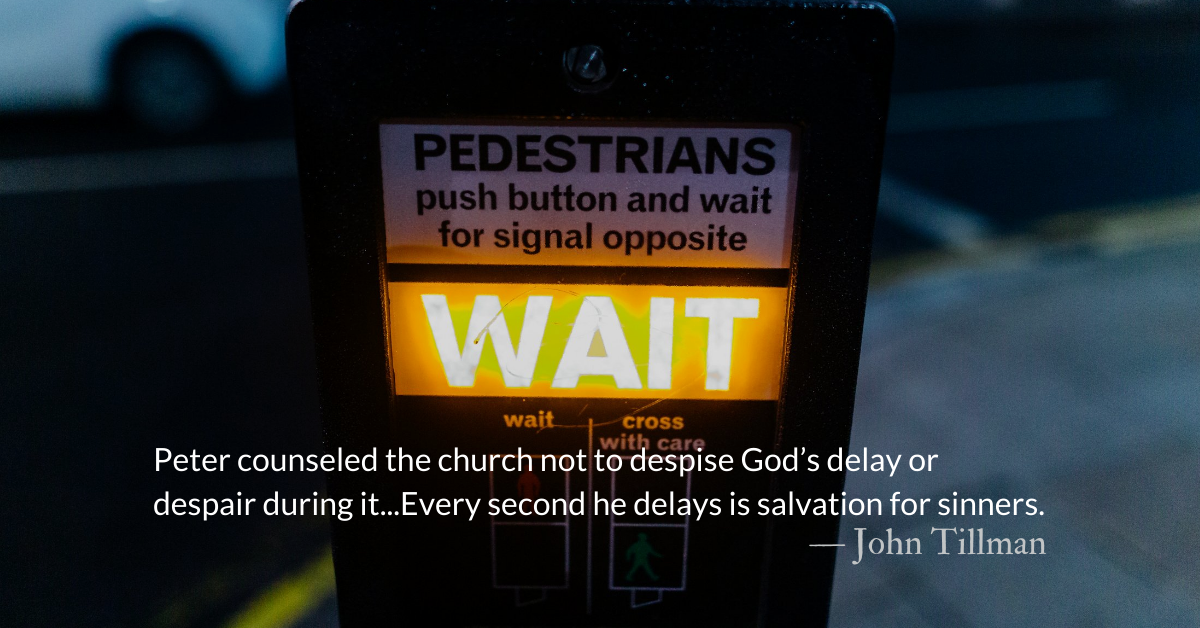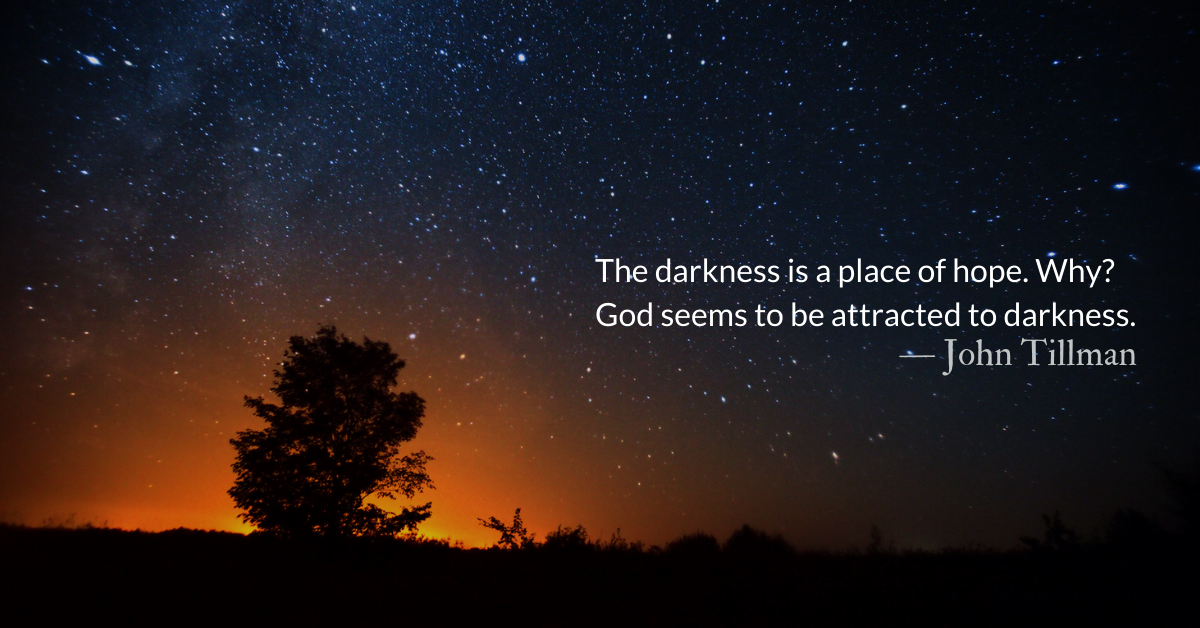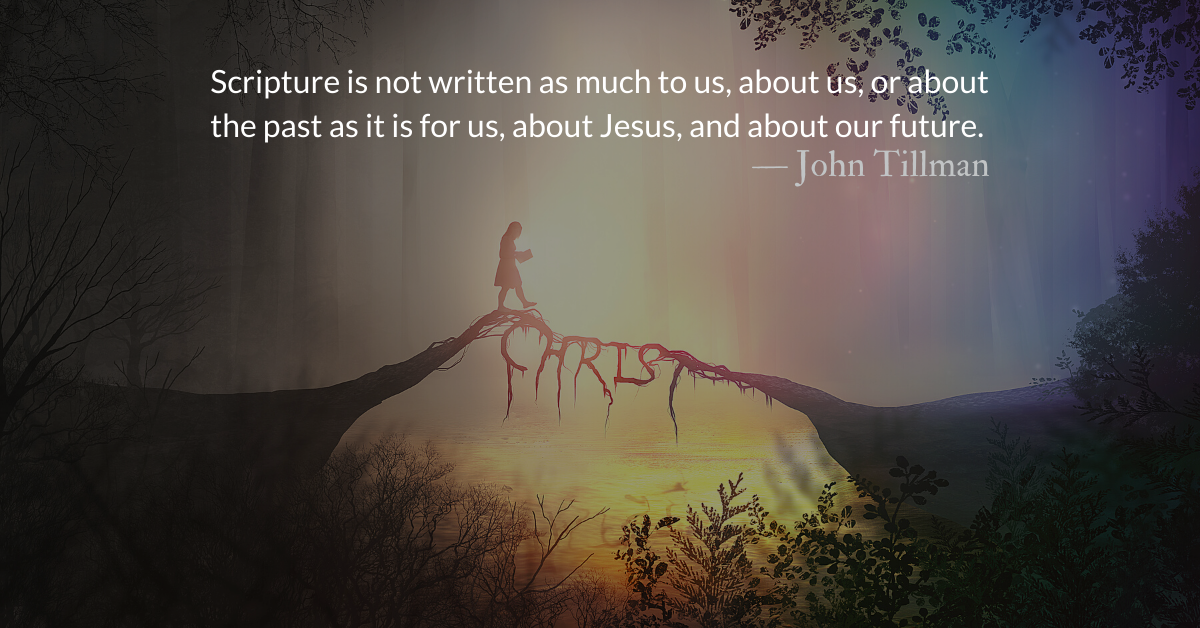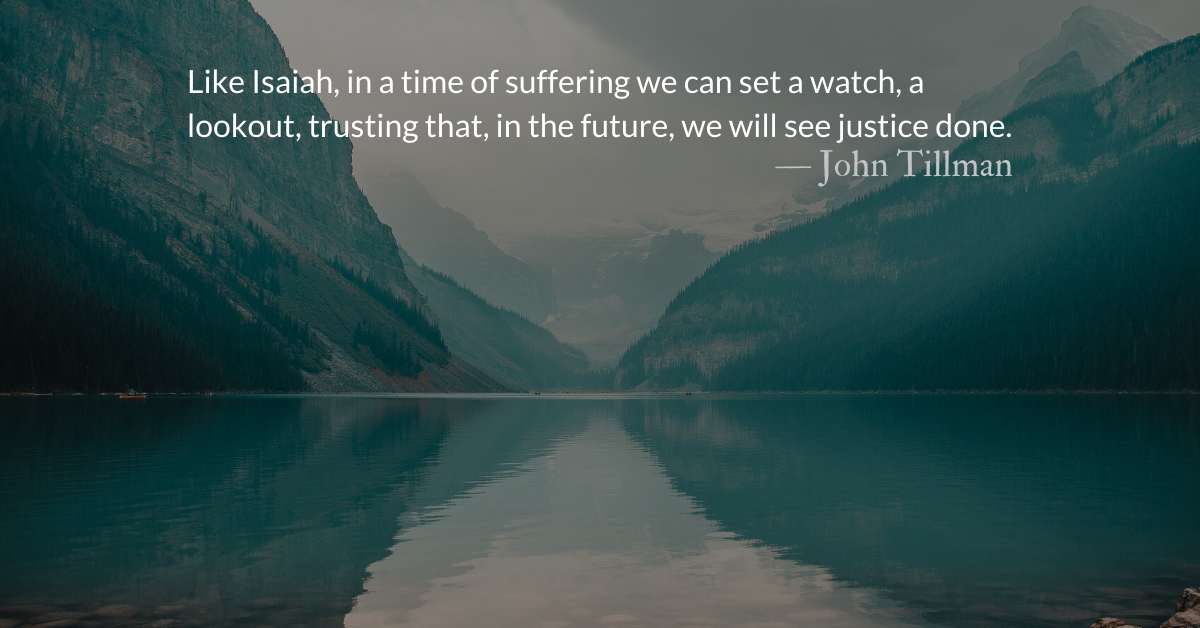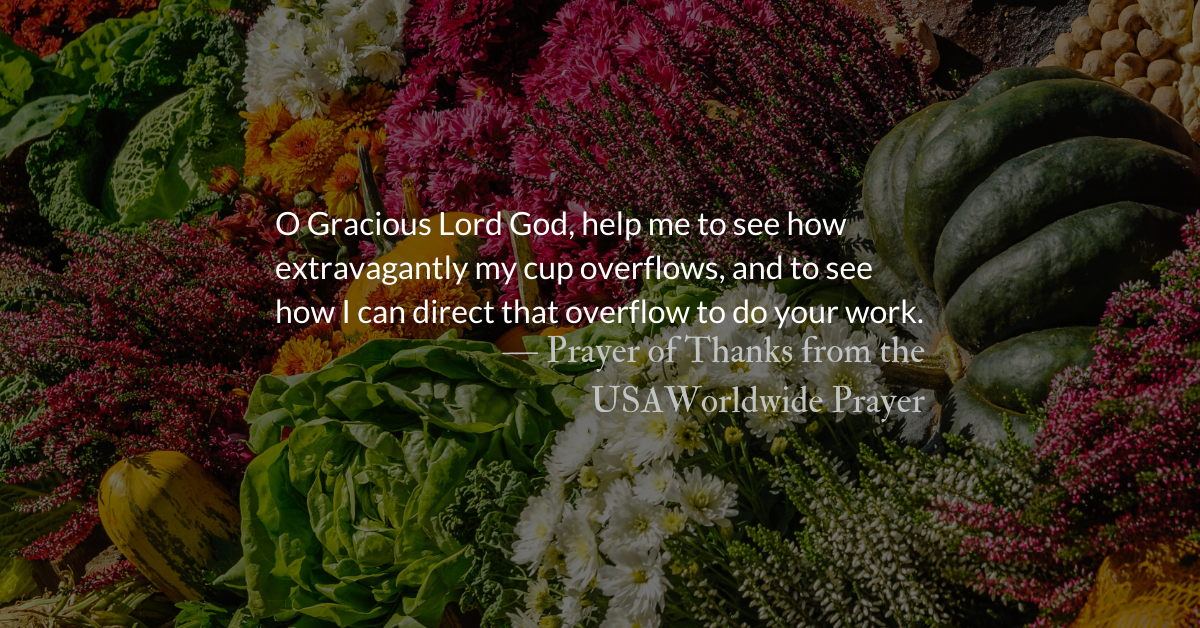Scripture Focus: 1 Chronicles 29.15
15 We are foreigners and strangers in your sight, as were all our ancestors. Our days on earth are like a shadow, without hope.
2 Peter 3.9-10, 13-15
9 The Lord is not slow in keeping his promise, as some understand slowness. Instead he is patient with you, not wanting anyone to perish, but everyone to come to repentance.
10 But the day of the Lord will come like a thief. The heavens will disappear with a roar; the elements will be destroyed by fire, and the earth and everything done in it will be laid bare.
13 But in keeping with his promise we are looking forward to a new heaven and a new earth, where righteousness dwells. 14 So then, dear friends, since you are looking forward to this, make every effort to be found spotless, blameless and at peace with him. 15 Bear in mind that our Lord’s patience means salvation…
Reflection: Hope in Mercy, Not Wrath — Hope of Advent
By John Tillman
As David neared death, he acknowledged that life seemed to be “a shadow, without hope.”
We are not wrong, like David, to admit that the world is a dark place. The world is undeniably filled with wickedness, injustice, oppression, poverty, and violence. It is a lie to deny this darkness. What is more, we are the reason the earth is filled with darkness.
We are responsible for the shadows of hopelessness upon the world. We are responsible collectively and individually, historically and personally. For this reason, much of what we know and see of this world is destined for destruction and wrath.
It can be tempting, especially when we are suffering, to put our hope in God’s wrath. David did this from time to time. (Psalm 69.22-28) When we hope in wrath, we wait impatiently. Every second that God’s fiery wrath is delayed, we doubt his love and justice.
It is just for God to destroy evil. It is also just that those who refuse to abandon evil and repent will perish along with it. Yet, it is hypocritical for those of us delivered from destruction only by the mercy of God to desire only destruction for our enemies.
For David and for us, setting our hope on God’s wrath is unfulfilling. In his life and art, David also clung to the hope of resurrection. In Psalm 16, David pointed to life beyond death and a hope that he would be in God’s presence and experience eternal pleasures.
Peter relied on David’s psalm in his Pentecost sermon, explaining that the hope David held was fulfilled in the resurrection of Jesus. Later in Acts, Paul also argued that David’s psalm expressed hope in the resurrection of the messiah to come. (Acts 2.20-32; 13.32-41) In Peter’s second letter, he repeated and reinforced this theme.
The destruction of our enemies is a tempting image. Peter, however, counsels his readers in a different direction. These believers suffered under persecutions that most western Christians have never in history endured. Yet, Peter counseled the church not to despise God’s delay or despair during it.
As we wait during this advent and always, let us rend our hearts hoping for God’s mercy for sinners rather than wringing our hands savoring the thought that evildoers will suffer.
As we wait, let our hope be in God’s mercy and patience. Every second he delays is salvation for sinners.
Divine Hours Prayer: The Call to Prayer
Let us make a vow to the Lord our God and keep it; let all around him bring gifts to him who is worthy to be feared. — Psalm 76.11
– From The Divine Hours: Prayers for Autumn and Wintertime by Phyllis Tickle.
Today’s Readings
1 Chronicles 29 (Listen – 5:50)
2 Peter 3 (Listen – 3:21)
Read more about Supporting our Work
We are thankful for our donors’ gifts because they contribute to improving the spiritual discipleship of readers around the globe.
Read more about When God Has Mercy…Will We?
Do we mistakenly think we deserve God’s mercy while others don’t?

